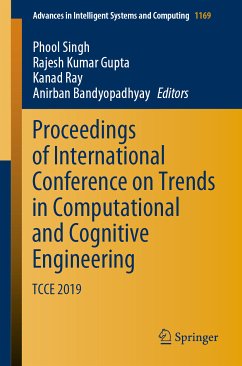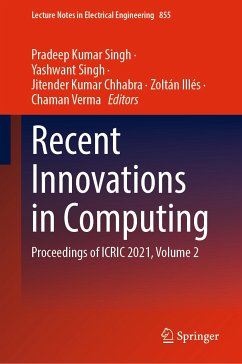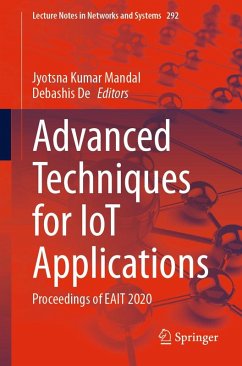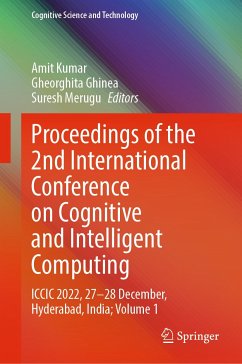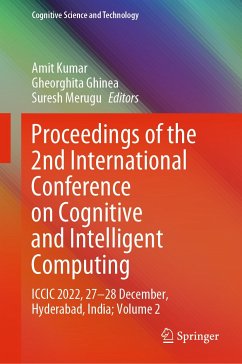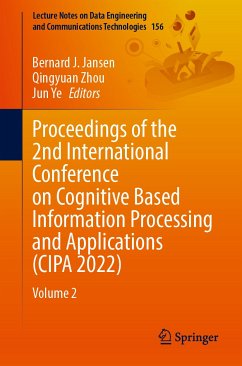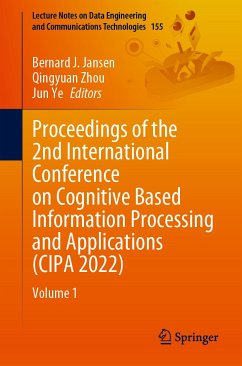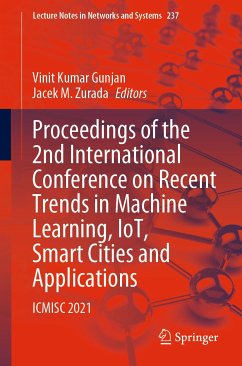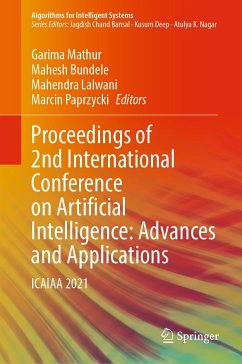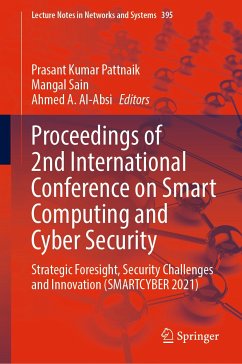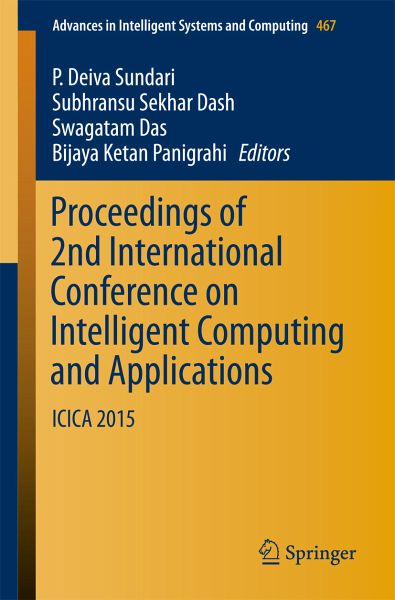
Proceedings of 2nd International Conference on Intelligent Computing and Applications (eBook, PDF)
ICICA 2015
Redaktion: Deiva Sundari, P.; Panigrahi, Bijaya Ketan; Das, Swagatam; Dash, Subhransu Sekhar
Versandkostenfrei!
Sofort per Download lieferbar
160,95 €
inkl. MwSt.
Weitere Ausgaben:

PAYBACK Punkte
80 °P sammeln!
Second International Conference on Intelligent Computing and Applications was the annual research conference aimed to bring together researchers around the world to exchange research results and address open issues in all aspects of Intelligent Computing and Applications. The main objective of the second edition of the conference for the scientists, scholars, engineers and students from the academia and the industry is to present ongoing research activities and hence to foster research relations between the Universities and the Industry. The theme of the conference unified the picture of conte...
Second International Conference on Intelligent Computing and Applications was the annual research conference aimed to bring together researchers around the world to exchange research results and address open issues in all aspects of Intelligent Computing and Applications. The main objective of the second edition of the conference for the scientists, scholars, engineers and students from the academia and the industry is to present ongoing research activities and hence to foster research relations between the Universities and the Industry. The theme of the conference unified the picture of contemporary intelligent computing techniques as an integral concept that highlights the trends in computational intelligence and bridges theoretical research concepts with applications. The conference covered vital issues ranging from intelligent computing, soft computing, and communication to machine learning, industrial automation, process technology and robotics. This conference also provided variety of opportunities for the delegates to exchange ideas, applications and experiences, to establish research relations and to find global partners for future collaboration.
Dieser Download kann aus rechtlichen Gründen nur mit Rechnungsadresse in A, B, BG, CY, CZ, D, DK, EW, E, FIN, F, GR, HR, H, IRL, I, LT, L, LR, M, NL, PL, P, R, S, SLO, SK ausgeliefert werden.



